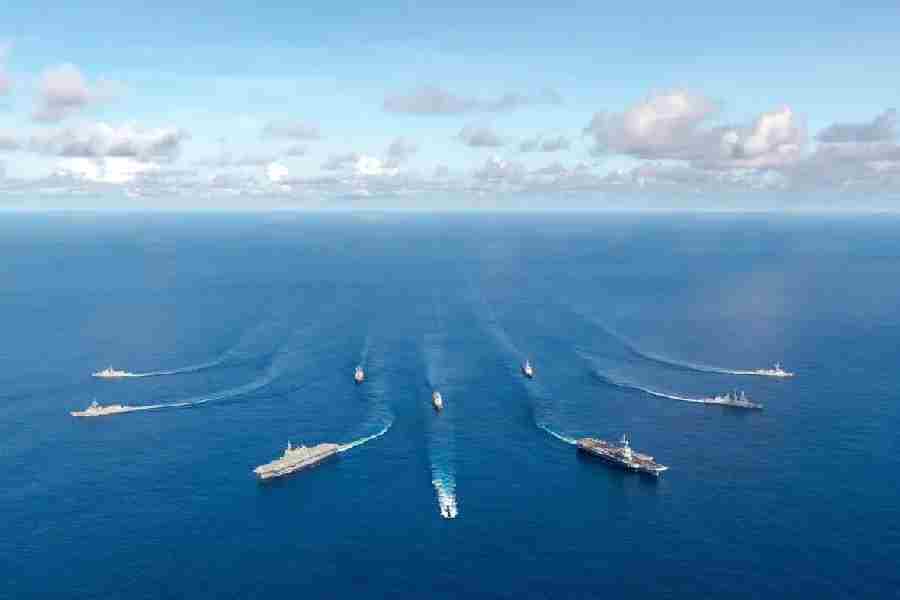The Indian Ocean region presents complex realities. It is a vast maritime expanse with unique spatial and strategic characteristics. The vastness of its geography is often suggested as a reason for the lack of any substantial regional thinking in the Indian Ocean. In this region, nation-states continue to pursue their national interests, often resulting in divergent policy outlooks. In this context, the Colombo Security Conclave presents an opportunity to forge a meaningful forum for enhancing regional cooperation in the Indian Ocean. By way of membership, the grouping consists of countries within South Asia and the Western Indian Ocean. But it can serve as an important framework to inspire a broader maritime security architecture in the Indian Ocean.
The grouping, originally mooted in 2011 as a national security adviser-level trilateral forum among India, Sri Lanka and the Maldives and later revived after an enduring halt in 2020 as the Colombo Security Conclave, has taken significant strides in emerging as an important forum of security deliberations. The Conclave’s revival has been robust on account of further expansion, with Bangladesh and Mauritius joining earlier this year. This revival culminated with the signing of a Charter and a memorandum of
understanding for the establishment of a secretariat for the Colombo Security Conclave.
The Colombo Security Conclave is important as it invokes a vital shift in the way national security is framed and understood. A continental bias has often dominated the security thinking of nation-states, especially those with a peninsular character of geography. While a state may be exposed to both land and the seas, the continental front is often likely to be accorded priority in conceptualising its security. The Colombo Security Conclave, being a national security adviser-level forum, indicates the inclusion of a maritime security pillar in national security thinking. Importantly, the grouping consists of five key pillars of cooperation — maritime safety and security; countering terrorism and radicalisation; combating trafficking and transnational organised crime; cyber security and protection of critical infrastructure and technology; and humanitarian assistance and disaster relief.
This shift is vital on two inter-related accounts. First, at a normative level, adding a robust maritime dimension to national security thinking and conversations lays the ground for a holistic approach to security preparedness. Second, in practical terms, it remains important to approach key issues of security at sea, such as trafficking, transnational crimes, maritime terrorism, and radicalisation, from the perspective of national security as they pose the risk of spilling over into sovereign territories of states, disturbing domestic dynamics with fatal implications for society.
However, the grouping remains vulnerable to critical challenges. The political landscape of the member states appears to be in the midst of a churn. Given the political instability in Bangladesh, the Maldives’s continued balancing act amidst great power rivalry, the change of regime in Sri Lanka and perhaps one impending in Mauritius later this year, it remains to be seen how these member-states continue to view the grouping. Indeed, the members of the grouping have significant maritime interests. Thus, a regional forum premised on enhancing cooperation on security issues in the maritime domain will not be lost on the security thinking of the member-states. India’s continued interest in cultivating this grouping as a vital forum in the region is demonstrated by its need to look for avenues to enhance cooperation in the Indian Ocean.
The Colombo Security Conclave presents an opportunity to overcome the challenges of cultivating a regional approach to maritime security thinking. It is likely to resolve the challenges of spatial vastness and diverse impediments. Additionally, through this forum, the member-states are well-placed to emphasise the maritime dimension within larger national security conversations.
Sayantan Haldar is Research Assistant, Maritime Studies, Observer Research Foundation, New Delhi










